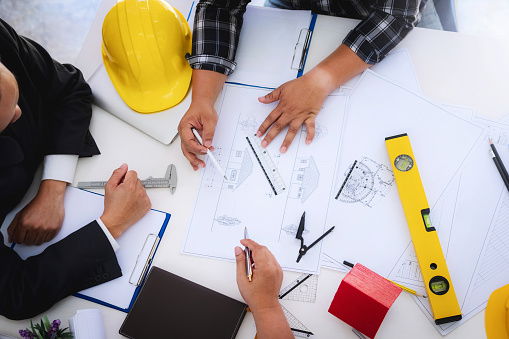Construction Payment Management

The construction payment management process involves preparing and submitting a comprehensive "application for payment." This document is much more detailed than an invoice and requires a large number of items that aren't easily captured in accounting systems. This document involves the input of many people in an organization, including subcontractors. It also requires daily updates, reports to stakeholders, and photo documentation for backup evidence. Many different companies offer construction payment management services. Some companies automate the entire payment process while others focus on a single function. Some construction payment management solutions are based on cloud technology. Some construction payment management software can also provide a customized solution. A cloud-based platform like Payapps can automate the payment process, improve valuation processes, and manage change orders.
Construction lien company services can assist with identifying and resolving cash flow issues during a construction project. These payment processes also help contractors identify quality-of-work problems and incentivize them to complete tasks on time. Progress payments can help prevent cash flow problems in construction and eliminate the risk of client bankruptcy. Construction payment management solutions allow for real-time transparency of payments, notices, variations, and retentions.
As a result, a construction payment management system can help construction companies reduce risk and mitigate potential litigation. Furthermore, these solutions can help a construction company comply with state-based security of payments legislation. Furthermore, these software solutions can eliminate the risk of manual processing and ensure compliance with the latest security laws. For more facts about payments, visit this website at https://www.dictionary.com/browse/payment. In addition to lump-sum pricing, construction payment management services can also be based on cost-plus pricing. The former covers the cost of construction, including overhead, plus an agreed-upon profit amount. Cost-plus contracts also require thorough record-keeping. In some cases, a cost-plus contract might pay out after 25% of the project is complete. A construction payment management system can reduce friction between the contractors and developers. It also can reduce the amount of time spent on administration, recording applications, and archiving documentation. This can lower processing costs by as much as 50%. As a result, a construction payment management system can increase the efficiency of all parties involved in the payment process.
Another important feature of construction payment management software is that it integrates with construction accounting software, or ERP systems. This integration helps construction companies make more informed payments. GCPay integrates with several ERP systems, including Sage 300, Viewpoint Vista, CMiC, Sage Intacct for Construction, and Acumatica. Creating a proper construction payment management system is critical to maintaining a smooth cash flow. Without effective payment management software, payments can be delayed, or even stalled. A properly organized system will provide transparency and avoid costly mistakes. It will also help improve cash flow.
With no need for manual reconciliation, electronic payment systems will ensure that payments are made on time and to the correct parties. A construction payment management system can help streamline a complex, manual payment process and make all payments more timely. With integrated payroll and accounting software, contractors can easily and accurately manage their projects and reduce their costs. It also helps manage unforeseen liabilities. Be sure to click to read for more details!
